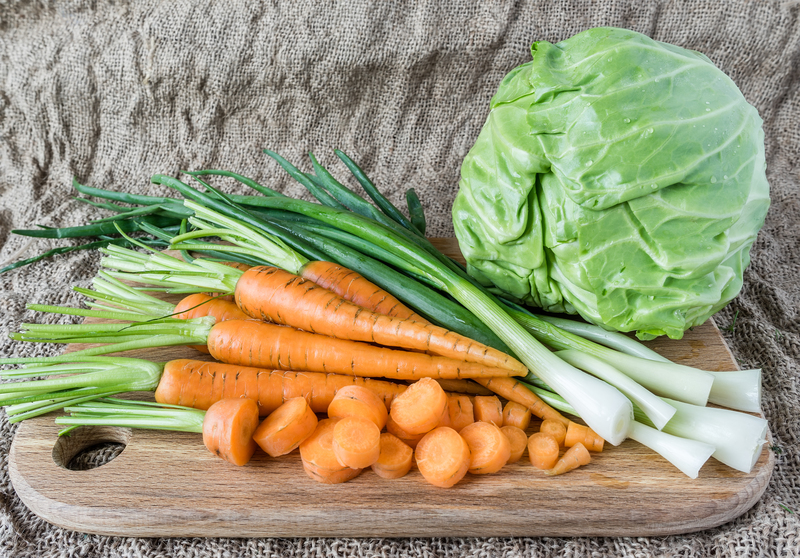Techniques to Store Garden Herbs
Posted on 24/10/2024
Having a garden full of fresh herbs can be a gardener's delight. These green wonders not only add a burst of flavor to your dishes but also bring a fresh aroma to your kitchen. However, knowing how to store garden herbs effectively is crucial to preserving their freshness and enhancing their shelf life. Let's explore various techniques to store your garden herbs optimally.
Drying Herbs
One of the oldest and most effective methods of storing herbs is drying them. This method helps in retaining the flavor over an extended period.
Air Drying: Tie small bundles of herbs like rosemary, thyme, and oregano, and hang them upside down in a well-ventilated area away from direct sunlight.
Oven Drying: Place herbs on a baking sheet and bake them at the lowest temperature setting, turning occasionally until they are dry and crumbly.
Dehydrator: Using a food dehydrator can be another efficient way to dry herbs. Follow the manufacturer's instructions to ensure quality drying.

Freezing Herbs
Freezing is another excellent method to store herbs, retaining their fresh flavor.
Individual Leaves: Spread individual leaves on a baking sheet and freeze them. Once frozen, transfer them to an airtight container or freezer bag.
Ice Cube Trays: Chop the herbs and place them in ice cube trays, top with water or olive oil, and freeze. This allows you to pop out a cube whenever needed, especially for soups and stews.
Refrigeration Techniques
For those who prefer to use fresh herbs quickly, refrigeration can be an effective short-term solution.
Herb Bouquet: Place the herb stems in a glass of water like a bouquet, cover loosely with a plastic bag, and store in the refrigerator.
Moist Paper Towel: Roll the herbs in a moist paper towel and place them inside a plastic bag or airtight container. Make sure the towel isn't too wet to avoid mold.
Herb Oils and Butters
Creating herb oils and butters can be a delicious way to preserve the flavor of your garden herbs.
Herb-Infused Oils: Mix chopped fresh herbs with olive oil and store in airtight containers. Refrigerate to prevent bacterial growth.
Herb Butter: Blend softened butter with finely chopped herbs. Mold into a cylinder, wrap it in plastic wrap, and refrigerate. Slice off pieces as needed for cooking.
Herb Vinegars and Salts
Herb vinegars and salts provide a unique way to incorporate herbs into your diet while preserving them.
Herb-Infused Vinegars: Combine herbs like tarragon, basil, or dill with vinegar in a sterilized jar. Let it infuse for a few weeks, then strain and store in sterilized bottles.
Herb Salts: Blend fresh herbs with coarse salt and spread the mixture on a baking sheet to dry. Once dry, store in an airtight container.
Pros and Cons
Drying Herbs
- Pros: Long shelf life, easy to store.
- Cons: Can lose some flavor and color.
Freezing Herbs
- Pros: Retains fresh flavor, convenient for cooking.
- Cons: Requires freezer space, some herbs may become wilted when thawed.
Refrigeration
- Pros: Keeps herbs fresh for short periods, easy access.
- Cons: Short shelf life, potential for condensation issues.
Herb Oils and Butters
- Pros: Enhances flavors, versatile usage in cooking.
- Cons: Requires refrigeration, limited shelf life.
Herb Vinegars and Salts
- Pros: Adds unique flavors, long shelf life with proper storage.
- Cons: Initial preparation time, may not be suitable for all dishes.
Tips
- Label containers with the type of herb and date of storage.
- Ensure herbs are completely dry before storing to prevent mold.
- Use airtight containers to keep out moisture and preserve freshness.
- Experiment with small batches to find the best storage method for each herb.

Takeaways
Different methods work best for different herbs, so it's important to experiment with various techniques. Drying, freezing, refrigeration, and creating herb-infused products each offer unique advantages and disadvantages.
Conclusion
Storing garden herbs effectively ensures that your harvest lasts longer and remains flavorful. By using a combination of drying, freezing, refrigeration, and making herb-infused products, you can enjoy the taste and benefits of fresh herbs at any time of the year.
Experiment with these techniques and find what works best for your favorite herbs, ensuring that your garden's bounty enhances your cooking for months to come.
Latest Posts
Inspiring Ways to Refresh Your Garden This Autumn Season
A Step by Step Guide to Keeping Artificial Grass Fresh and Spotless
Creative Planting Ideas to Design a Serene Zen Oasis







